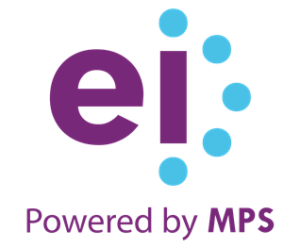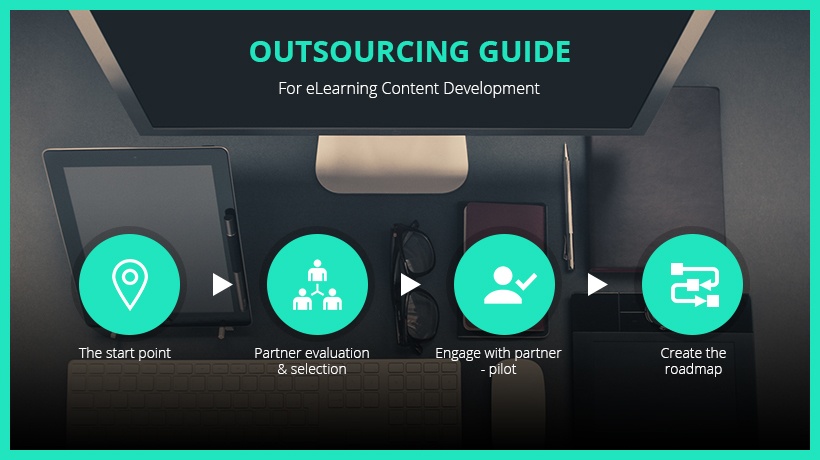Why Should Organizations Consider Outsourcing eLearning Content Development?
To successfully handle the changing dynamics of business today, firms are finding that effective partnerships are a must. COVID forced many companies to modify their staffing models, moving away from in-office teams to virtual teams. A new normal is emerging, one in which firms are leveraging hybrid staffing models. It’s clear that a hybrid workplace model is more effective than the traditional model.
Accommodating the changing needs of this type of audience has added complexity to the L&D function. A shifting model that includes some on-site employees and some remote employees highlights the trend for learning to move toward digitization. There’s an increased demand for innovative digital training options. Employees need information in the flow of work, and work can happen almost anywhere. Digital eLearning content best accommodates this need. Users are demanding more flexible learning options.
This has widened the scope for L&D teams beyond what a traditional staffing model can handle. No traditional team can possess all the specialized skills and knowledge required for today’s evolving hybrid labor model.
How Should Organizations Embrace The Strength Of Outsourcing Partnerships?
Companies operate in a world of finite resources. It’s highly competitive to find and retain top talent. Today’s world is different than it was when employees had to sit near each other to collaborate. Modern communication tools have essentially eliminated geographic distances. Individuals can work together regardless of their geographic location. Those firms that embrace this change will succeed. Those that resist will fall behind.
This new paradigm is particularly optimized for knowledge work. L&D professionals should analyze how to leverage the new paradigm of employer and employee relationships, organization, and virtual connectivity to utilize a larger talent pool.
Companies that don’t embrace outsourcing are faced with several problems:
- They employ large teams made up of specialists with a few project managers and one or two generalists.
- Project managers and generalists become a bottleneck for efficiency and effectiveness. They can limit creativity and innovation due to the lack of skills and ability to expand beyond their team’s skill set.
- They employ large teams made of mostly generalists with few specialists or project managers. Work quality may degrade to superficial learning solutions.
- Hungry for the best talent but limited to a small geographic region, business leaders develop a limited vision and stunt the impact employee development has on customer performance and business success.
In each case, the current (and outdated) way of approaching labor slows innovation and productivity such that new knowledge work companies who have embraced an outsourcing model will overtake and out-compete those who don’t.
What Are The Advantages Of Outsourcing eLearning Content Development To A Strategic Partner?
Outsourcing eLearning content development enables firms to meet the needs of a hybrid workforce and the increasing demands from business stakeholders. All the things that L&D teams need to do require skills not present on any given traditional team. However, the right eLearning content development partner can bridge this gap.
There are several advantages if you outsource eLearning content development to strategic partners:
- Outsourcing eLearning content development to a strategic partner gives firms a virtually infinite bench of talent. There are many specialists out there hungry to be paid for their skilled labor. Firms no longer must keep specialized skills in-house but can instead outsource for these skills as needed. For example, for a project that requires script writing and video development, in-house project managers can hire a strong scriptwriter and then pass their work on to an outsourcing eLearning content development team with strong video development skills. More focused skills can be found for short-term tactical work, closing the loop it takes to upskill internal employees.
- Outsourcing firms already have proven talent, and therefore partnerships show immediate positive returns.
- When working with outsourced partners, it’s easy to set and adhere to quality standards. This gives L&D teams useful flexibility to leave an outsourcing company if they don’t meet promised standards.
- Outsourcing eLearning content development increases innovation and creativity by bringing in a fresh, outside perspective.
- Unfortunately, full-time employees (FTEs) aren’t always motivated to work quickly. However, outsourcing firms are motivated to do a great job as quickly as possible so they can move on to the next project. Project time to completion is decreased by outsourcing eLearning content development.
- The work cycle doesn’t stop when partnering with outsourcing firms. In fact, it’s advantageous to find outsourcing partners that operate in different times zones, giving teams a chance to build content while stakeholders aren’t working. They can then request reviews when stakeholders are working, essentially eliminating wait time. This increases iteration opportunity while reducing time to completion. There are no pauses because while one team is off-cycle, the other is working.
- Outsourcing eLearning content development provides a flexible cost model wherein firms can find the labor they need at a potentially reduced cost from what is available locally.
- Additionally, companies get more bang for their buck because all they pay for when working with outsourcing partners is labor; they don’t need to worry about paying employees to complete administrative tasks like attending meetings or completing compliance trainings.
- The hiring process usually takes a long time and is expensive. In an outsourcing model, firms don’t have to worry about hiring talent, the outsourcing partners take care of that.
- L&D teams can be more scalable, quickly reacting to changing business requirements. By outsourcing eLearning content development, they can easily grow as the need increases and shrink during downtime.
- L&D teams can be more agile in the types of training solutions they build when engaged with outsourcing partners. They’re no longer limited to the narrow range of expertise within a small team of FTEs.
- Outsourcing eLearning content development reduces the risk inherent in training rollouts because firms can select partners who have a proven record of content development and program implementation.
How Can Organizations Overcome Potential Challenges Of Outsourcing eLearning Content Development?
Company culture may shy away from using outsourcing partners. Employees may feel threatened. Trust is often an issue, especially at first. IT and HR departments are sometimes hesitant to operate with outsourced partnerships. However, once they see the immediate benefits from working with contract partners, those fears soon dissolve.
Sometimes, companies worry that they’ll lose their close-knit family team feeling. But outsourcing partners quickly become extensions to permanent team components, tools that extend their capabilities to build effective eLearning content.
Some in-house L&D professionals will need to shift from being content developers to project managers. While this worries some FTEs, it creates an environment in which L&D teams can be more agile, quickly responding to stakeholder requests and hybrid employee needs. Those L&D professionals learn to become solution designers, not just content developers.
Parting Thoughts
Outsourcing eLearning content development has many advantages. I hope this article provides the required insights about how solid partnerships with eLearning content developers will enhance the productivity and effectiveness of L&D teams.
Meanwhile, if you have any specific queries, do contact me or leave a comment below.
Read More:
- How to Build an Army of Lifelong Learners in Your Organization
- Creating a Connected Learning Solution by Supporting Your Formal Training with Informal Learning
- Tips and Strategies to Demonstrate the Value of Your Training Programs
- How to Measure the Business Impact of Your Training and Development Programs










